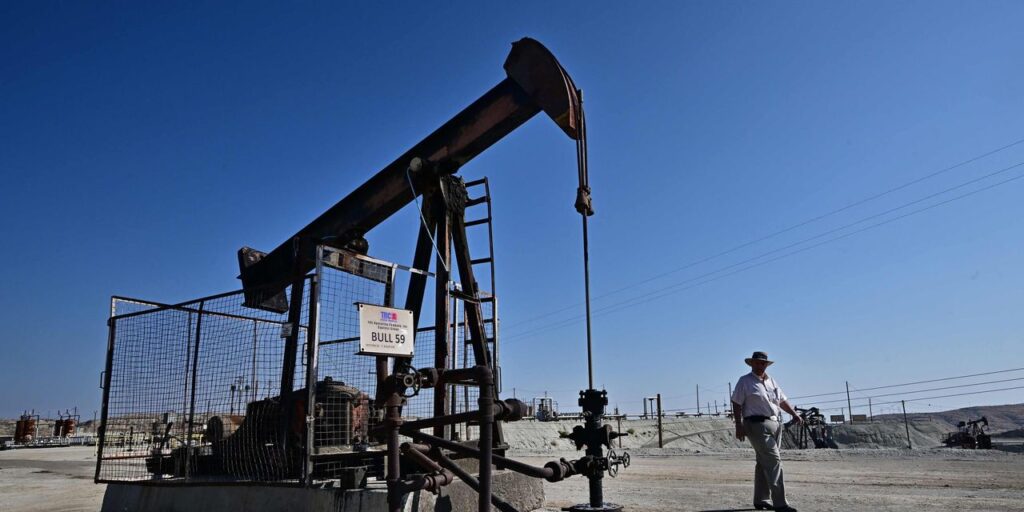Oil futures were slightly higher Friday, but remained on track for a third straight weekly decline as worries about the outlook for demand have overtaken supply risks tied to the Israel-Hamas war.
Price action
-
West Texas Intermediate crude
CL00,
+1.24%
for December delivery
CL.1,
+1.24% CLZ23,
+1.24%
rose 91 cents, or 1.2%, to $76.65 a barrel on the New York Mercantile Exchange, but were on track for a 4.8% weekly drop. -
January Brent crude
BRN00,
+1.29% BRNF24,
+1.29% ,
the global benchmark, was up 95 cents, or 1.2%, at $80.96 a barrel on ICE Futures Europe, on pace for a 4.6% decline on the week.
Market drivers
Weak economic data out of China and fears of a potential U.S. and global slowdown have become a top concern for traders. Crude prices this week traded at the lowest since mid-July before bouncing, more than erasing the modest rise seen following the Oct. 7 attack by Hamas on southern Israel.
“Sentiment has shifted on the oil market: what began as a pricing out of the geopolitical risk premium has ended with a marked correction,” said Barbara Lambrecht, commodity analyst at Commerzbank, in a note.
Oil’s rally over the summer and fall had been attributed in large part to supply concerns, with Saudi Arabia in July implementing a production cut of 1 million barrels a day, which it proceeded to roll over, extending it through at least the end of the year. Russia also pledged to continue a supply cut of 300,000 barrels a day, though analysts say Russia appears to have boosted exports, adding to pressure on the market.
The recent slide in prices “makes it likely that the kingdom will ‘voluntarily’ extend its production cuts once again — presumably for one more quarter” when the Organization of the Petroleum Exporting Countries and its allies meet on Nov. 26, Lambrecht said.
“Russia can be expected to do the same, though the country has been implementing its cuts with less discipline of late. The prospect of production being restricted for some time longer argues against any further fall in price,” Lambrecht said.
Prince Abdulaziz bin Salman, Saudi Arabia’s energy minister, on Thursday dismissed talk of weaker oil demand, saying it was a “ploy” by speculators.
Key Words: People are just ‘pretending’ oiI demand is weak, says Saudi energy minister. ‘It’s all a ploy.’
Read the full article here

